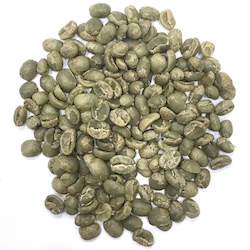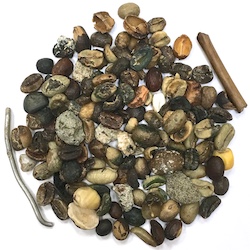Specialty Grade Coffee
The Specialty Coffee Association (SCA) defines two grades of coffee: Specialty Grade and Premium Grade. All coffees not meeting the criteria for these two categories are considered “Below Specialty Grade”. From a 350 gram bean sample, Specialty Grade coffee shall have zero Category 1 defects and five or less Category 2 defects (see below). All beans must be of a specific size, have at least one distinctive attribute in the body, flavor, aroma or acidity and have moisture content between 9 and 13 percent. They also can’t have any quakers, which are unripened beans.
Types of Defects
- Category 1: Full black or sour bean, pod/cherry, and large or medium sticks or stones.
- Category 2: Parchment, hull/husk, broken/chipped, insect damage, partial black or sour, shell, small sticks or stones, water damage.
The Simpler Definition: Specialty Grade coffee represents those coffees at the top tier of coffee bean quality evaluation. This evaluation allows for a maximum of 5 defective beans in a 350 gram sample and considers other factors such as bean size, taste notes and moisture content. It is estimated that no more than 5% of green coffees in the U.S. market make specialty grade status.
